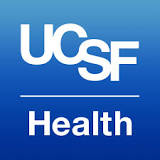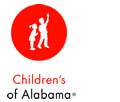Tivantinib in Treating Younger Patients With Relapsed or Refractory Solid Tumors
| Status: | Recruiting |
|---|---|
| Conditions: | Cancer |
| Therapuetic Areas: | Oncology |
| Healthy: | No |
| Age Range: | Any - 21 |
| Updated: | 5/5/2014 |
| Start Date: | October 2012 |
A Phase 1 Study of the c-Met Inhibitor, Tivantinib (ARQ 197, IND# 112603) in Children With Relapsed or Refractory Solid Tumors
This phase I trial studies the side effects and best dose of tivantinib in treating younger
patients with relapsed or refractory solid tumors. Tivantinib may stop the growth of tumor
cells by blocking some of the enzymes needed for cell growth.
patients with relapsed or refractory solid tumors. Tivantinib may stop the growth of tumor
cells by blocking some of the enzymes needed for cell growth.
PRIMARY OBJECTIVES:
I. To estimate the maximum tolerated dose (MTD) and/or recommended phase 2 dose of
tivantinib administered orally twice daily to children with refractory solid tumors.
II. To define and describe the toxicities of tivantinib administered on this schedule.
III. To characterize the pharmacokinetics of tivantinib (capsule as well as powder
formulation) in children with refractory cancer.
SECONDARY OBJECTIVES:
I. To preliminarily define the antitumor activity of tivantinib within the confines of a
phase 1 study.
II. To preliminarily investigate whether cytochrome P450 (CYP450) polymorphisms impact
pharmacokinetics or toxicity of tivantinib.
III. To preliminarily investigate whether tumor c-Met and/or hepatocyte growth factor (HGF)
expression or downstream c-Met signaling correlate with clinical response to tivantinib.
OUTLINE: This is a dose-escalation study.
Patients receive tivantinib orally (PO) twice daily (BID) on days 1-28. Treatment repeats
every 28 days for up to 12 courses in the absence of disease progression or unacceptable
toxicity.
After completion of study treatment, patients are followed up for 30 days.
I. To estimate the maximum tolerated dose (MTD) and/or recommended phase 2 dose of
tivantinib administered orally twice daily to children with refractory solid tumors.
II. To define and describe the toxicities of tivantinib administered on this schedule.
III. To characterize the pharmacokinetics of tivantinib (capsule as well as powder
formulation) in children with refractory cancer.
SECONDARY OBJECTIVES:
I. To preliminarily define the antitumor activity of tivantinib within the confines of a
phase 1 study.
II. To preliminarily investigate whether cytochrome P450 (CYP450) polymorphisms impact
pharmacokinetics or toxicity of tivantinib.
III. To preliminarily investigate whether tumor c-Met and/or hepatocyte growth factor (HGF)
expression or downstream c-Met signaling correlate with clinical response to tivantinib.
OUTLINE: This is a dose-escalation study.
Patients receive tivantinib orally (PO) twice daily (BID) on days 1-28. Treatment repeats
every 28 days for up to 12 courses in the absence of disease progression or unacceptable
toxicity.
After completion of study treatment, patients are followed up for 30 days.
Inclusion Criteria:
- PART A: Patients on dose levels -1 or 1 must have a body surface area (BSA) >= 0.65
m^2 at the time of study enrollment; patients on dose levels 2 or 3 must have a BSA
>= 0.45 m^2 at the time of study enrollment
- PART B: There is no minimum body surface area requirement for patients in part B
- Patients with relapsed or refractory solid tumors including central nervous system
(CNS) tumors are eligible; patients must have had histologic verification of
malignancy at original diagnosis or relapse except in patients with intrinsic brain
stem tumors, optic pathway gliomas, or patients with pineal tumors and elevations of
cerebrospinal fluid (CSF) or serum tumor markers including alpha-fetoprotein or
beta-human chorionic gonadotropin (HCG)
- Patients must have either measurable or evaluable disease
- Patient's current disease state must be one for which there is no known curative
therapy or therapy proven to prolong survival with an acceptable quality of life
- Karnofsky >= 50% for patients > 16 years of age and Lansky >= 50 for patients =< 16
years of age; note: neurologic deficits in patients with CNS tumors must have been
stable or improving for at least 7 days prior to study enrollment; patients who are
unable to walk because of paralysis, but who are up in a wheelchair, will be
considered ambulatory for the purpose of assessing the performance score
- Patients must have fully recovered from the acute toxic effects of all prior
anti-cancer chemotherapy:
- Myelosuppressive chemotherapy: At least 21 days after the last dose of
myelosuppressive chemotherapy (42 days if prior nitrosourea)
- Hematopoietic growth factors: At least 14 days after the last dose of a
long-acting growth factor (e.g. Neulasta) or 7 days for short-acting growth
factor; for agents that have known adverse events occurring beyond 7 days after
administration, this period must be extended beyond the time during which
adverse events are known to occur; the duration of this interval must be
discussed with the study chair
- Biologic (anti-neoplastic agent): At least 7 days after the last dose of a
biologic agent; for agents that have known adverse events occurring beyond 7
days after administration, this period must be extended beyond the time during
which adverse events are known to occur; the duration of this interval must be
discussed with the study chair
- Immunotherapy: At least 42 days after the completion of any type of
immunotherapy, e.g. tumor vaccines
- Monoclonal antibodies: At least 3 half-lives of the antibody after the last dose
of a monoclonal antibody
- Radiation therapy (XRT): At least 14 days after local palliative XRT (small
port); at least 150 days must have elapsed if prior total-body irradiation
(TBI), craniospinal XRT or if >= 50% radiation of pelvis; at least 42 days must
have elapsed if other substantial bone marrow (BM) radiation
- Stem cell infusion without TBI: No evidence of active graft vs. host disease and
at least 84 days must have elapsed after transplant or stem cell infusion
- Patients may not have received prior therapy with tivantinib
- Peripheral absolute neutrophil count (ANC) >= 1000/mm^3
- Platelet count >= 100,000/mm^3 (transfusion independent, defined as not receiving
platelet transfusions for at least 7 days prior to enrollment)
- Patients with known bone marrow involvement will be eligible for study provided they
meet the blood counts above (may receive transfusions provided they are not known to
be refractory to red cell or platelet transfusions); these patients will not be
evaluable for hematologic toxicity; at least 5 of every cohort of 6 patients with a
solid tumor must be evaluable for hematologic toxicity for the dose escalation part
of the study; if dose-limiting hematologic toxicity is observed, all subsequent
patients enrolled must be evaluable for hematologic toxicity
- Creatinine clearance or radioisotope glomerular filtration rate (GFR) >=
70ml/min/1.73 m^2 or a serum creatinine based on age/gender as follows:
- 1 to < 2 years: 0.6 mg/dL
- 2 to < 6 years: 0.8 mg/dL
- 6 to < 10 years: 1.0 mg/dL
- 10 to < 13 years: 1.2 mg/dL
- 13 to < 16 years: 1.5 mg/dL (males); 1.4 mg/dL (females)
- >= 16 years: 1.7 mg/dL (males); 1.4 mg/dL (females)
- Bilirubin (sum of conjugated + unconjugated) =< 1.5 x upper limit of normal (ULN) for
age
- Serum glutamic pyruvate transaminase (SGPT) (alanine aminotransferase [ALT]) =< 110
U/L; for the purpose of this study, the ULN for SGPT is 45 U/L
- Serum albumin >= 2 g/dL
- All patients and/or their parents or legally authorized representatives must sign a
written informed consent; assent, when appropriate, will be obtained according to
institutional guidelines
- Tissue blocks or slides must be sent; if tissue blocks or slides are unavailable, the
study chair must be notified prior to enrollment
Exclusion Criteria:
- Pregnant or breast-feeding women will not be entered on this study; pregnancy tests
must be obtained in girls who are post-menarchal; males or females of reproductive
potential may not participate unless they have agreed to use an effective
contraceptive method
- Patients receiving corticosteroids who have not been on a stable or decreasing dose
of corticosteroid for at least 7 days prior to enrollment are not eligible
- Patients who are currently receiving another investigational drug are not eligible
- Patients who are currently receiving other anti-cancer agents are not eligible
- Patients who are receiving cyclosporine, tacrolimus or other agents to prevent
graft-versus-host disease post bone marrow transplant are not eligible for this trial
- Patients must not be receiving any of the following for at least 24 hours prior to
enrollment: omeprazole, esoprazole, lansoprazole, pantoprazole, rifampin, omeprazole,
fluvoxamine, or moclobemide
- Patients must not be receiving any of the following for at least 24 hours prior to
enrollment: atazanavir, clarithromycin, indinavir, itraconazole, ketoconazole,
nefazodone, nelfinavir, ritonavir, saquinavir, telithromycin, troleandomycin (TAO),
voriconazole, rifampicin, rifabutin, rifapentine, phenytoin, carbamazepine,
phenobarbital, or St. John's Wort
- Nasogastric or G tube administration is not allowed; patients in part A must be able
to swallow capsules
- Patients who have an uncontrolled infection are not eligible
- Patients who have received a prior solid organ transplantation are not eligible
- Patients who in the opinion of the investigator may not be able to comply with the
safety monitoring requirements of the study are not eligible
- Patients with >= grade 2 bradycardia or with a known history >= grade 2 cardiac
arrhythmia are not eligible
We found this trial at
19
sites
225 E Chicago Ave
Chicago, Illinois 60611
Chicago, Illinois 60611
(312) 227-4000

Ann & Robert H. Lurie Children's Hospital of Chicago Ann & Robert H. Lurie Children
Click here to add this to my saved trials
Children's Hospital of Alabama Children
Click here to add this to my saved trials
3333 Burnet Avenue # Mlc3008
Cincinnati, Ohio 45229
Cincinnati, Ohio 45229
1-513-636-4200

Cincinnati Children's Hospital Medical Center Patients and families from across the region and around the...
Click here to add this to my saved trials
Baylor College of Medicine Baylor College of Medicine in Houston, the only private medical school...
Click here to add this to my saved trials
St. Jude Children's Research Hospital St. Jude is unlike any other pediatric treatment and research...
Click here to add this to my saved trials
Children's Hospital of Orange County For more than 45 years, CHOC Children’s has been steadfastly...
Click here to add this to my saved trials
Children's Hospital of Philadelphia Since its start in 1855 as the nation's first hospital devoted...
Click here to add this to my saved trials
4401 Penn Avenue
Pittsburgh, Pennsylvania 15224
Pittsburgh, Pennsylvania 15224
412-692-5325

Children's Hospital of Pittsburgh of UPMC UPMC is one of the leading nonprofit health systems...
Click here to add this to my saved trials
3181 Southwest Sam Jackson Park Road
Portland, Oregon 97239
Portland, Oregon 97239
503 494-8311

Oregon Health and Science University In 1887, the inaugural class of the University of Oregon...
Click here to add this to my saved trials
C S Mott Children's Hospital Behind the doors of C.S. Mott Children's Hospital there exist...
Click here to add this to my saved trials
Children's Healthcare of Atlanta Whether treating a toddler in an emergency or supporting a teen...
Click here to add this to my saved trials
Riley Hospital for Children Riley Hospital for Children at IU Health is a place of...
Click here to add this to my saved trials
Midwest Children's Cancer Center The Medical College of Wisconsin Cancer Center is dedicated to providing...
Click here to add this to my saved trials
2450 Riverside Ave
Minneapolis, Minnesota 55454
Minneapolis, Minnesota 55454
(612) 273-3000

University of Minnesota Medical Center, Fairview Improving patients' lives drives the innovation that makes University...
Click here to add this to my saved trials
Columbia University Medical Center Situated on a 20-acre campus in Northern Manhattan and accounting for...
Click here to add this to my saved trials
660 S Euclid Ave
Saint Louis, Missouri 63110
Saint Louis, Missouri 63110
(314) 362-5000

Washington University School of Medicine Washington University Physicians is the clinical practice of the School...
Click here to add this to my saved trials
505 Parnassus Ave
San Francisco, California 94143
San Francisco, California 94143
(415) 476-1000

University of California, San Francisco Medical Center UCSF Medical Center is recognized throughout the world...
Click here to add this to my saved trials
Seattle Children's Hospital Seattle Children’s Hospital specializes in meeting the unique physical, emotional and developmental...
Click here to add this to my saved trials
111 Michigan Ave NW
Washington, District of Columbia
Washington, District of Columbia
(202) 476-5000

Childrens National Medical Center As the nation’s children’s hospital, the mission of Children’s National Medical...
Click here to add this to my saved trials









